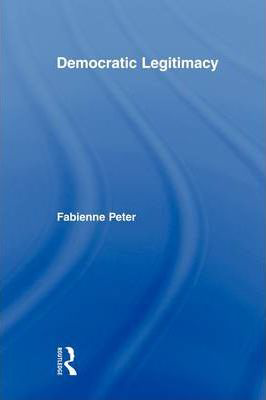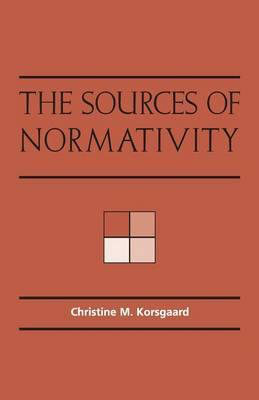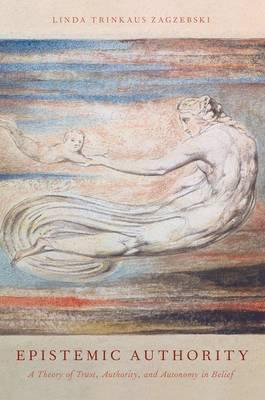Legitimacy and Epistemic Democracy
Interview by Richard Marshall.

Fabienne Peter is a Professor of Philosophy specializing in political philosophy, moral philosophy, and social epistemology. Here she discusses why democratic legitimacy is important, what kind of decision making it requires, the equality requirement, why collective rationality isn't a requirement, what theory of legitimacy is required, whether political decision-making requires experts to make good decisions and the requirements of epistemic democracy. Then she discusses health equity and social justice, and the normative significance of our interactions with others.
3:AM: What made you become a philosopher?
Fabienne Peter:I took the scenic route to philosophy. I started out studying economics but ended up disappointed by what I perceived to be the intellectual limitations of the “economic way of looking at life”, to quote Gary Becker. I had lots of questions that I felt could not be properly asked within the disciplinary constraints of economics – questions about justice, for example, or about rationality. And the sort of questions that could be asked didn’t particularly interest me. I was much more interested in the optional philosophy courses that I was able to take as part of my undergraduate degree. They were mostly in the history of philosophy and in continental philosophy and I developed an interest in the work of Derrida, in particular, and also in the exchange between Habermas and Lyotard on the prospects of rational justification – I took the side of Lyotard,
My current interests started to form when I accidentally stumbled upon Rawls’ A Theory of Justicein a bookshop. Nobody had told me to read Rawls, so I didn’t know what I was reading (this was pre-Google). But the book had a very powerful impact on me: I felt that I had found what I was not getting from studying economics. Finally I was reading a text that had the theoretical ambitions of the best of economic modelling but that also managed to address an important topic and in an overall persuasive way.
In doing research on the themes of Rawls’ theory of justice, I discovered Amartya Sen’s work and that was another life-changer. Sen’s brilliant writings helped me see how my interests in philosophy related to my studies in economics and so I decided to embark on a PhD – still in economics, however. It did not occur to me at that point that I should perhaps switch disciplines. My – very naïve – thought was that Sen’s was the sort of economic theory that I was interested in. I realised only quite a bit later that I was primarily interested in the philosophical aspects of Sen’s work.
During my PhD, I was able to visit Harvard for a year and to work with Sen on his contributions to social choice theory and its significance for democratic theory. I was affiliated with the Economics Department and a teaching assistant for microeconomics. But I audited as many philosophy lectures as I could during that year. I was very impressed by Christine Korsgaard’s lectures, for example, because of her philosophical depth and breadth. I was a little less impressed by Derek Parfit’s lectures on utilitarianism – I felt that I already had had my fill of utilitarianism through normative economics. Rawls wasn’t lecturing that year. But I had the great privilege of discussing core ideas of my PhD-thesis with him. And I was able to audit a wonderful course co-taught by Sen, Nozick, and Maskin on social choice theory and justice. Maskin is an outstanding economist. But my impression was that his points didn’t stand a chance against the force of Sen’s and Nozick’s philosophical arguments.
It thus eventually dawned on me that I wanted to pursue an academic career in philosophy. But it took quite a few more years before I managed to transition out of economics and into philosophy. What attracts me to philosophy is how asking questions about the concepts that shape our thinking about issues is encouraged, not sanctioned. And philosophy enables us to ask such questions in a positive, productive way, one that can change how we think about those issues.
The first philosophical topic I worked on – starting with my PhD thesis – was democratic legitimacy and the question of how we should think about democracy and its normative requirements. I am still very much interested in political legitimacy and, at the metanormative level, in the question of how political decisions might be justified. But have also developed a range of other interests spanning political philosophy, moral philosophy, and epistemology.

3:AM:Democracy is under pressure at the moment according to some prominent commentators. You’ve looked at what is required for democratic legitimacy. To begin with, why is democratic legitimacy important, and do you take it to be a distinct normative concept?
FP:As I understand it, a legitimate political decision is a decision that the relevant political body – say a government agency or the democratic collective as a whole – is entitled to make and that is binding for the citizens. Political legitimacy is thus a normative property that some political decisions have. Political decisions can have a whole range of further normative properties, of course, for example the property of being just – of giving people what is owed to them – or the property of being efficient – of leaving no room for making some people better off without making others worse off.
Democratic legitimacy, more specifically, is a normative property that some political decisions have in virtue of them having been made democratically. It is often thought that political legitimacy requires democracy. On this view, only political decisions that have been made democratically – either directly or that are indirectly supported by a democratic decision – can be politically legitimate. But it is conceivable that political decisions can be legitimate even though they have not been made democratically. I will say more about this below.
I think that the question of how political decisions should be made is an important normative question in its own right. Against this view, it can be argued that the property of legitimacy reduces to other properties. Many hold the view that legitimacy reduces to the property of justice. On this alternative view, a political decision is legitimate if (and, perhaps, only if) it is just. The entitlement to make decisions on behalf of the citizens derives from the justice of the decisions themselves and the citizens are bound – and perhaps only bound – by just decisions.
One way to support the claim that legitimacy reduces to justice is to argue that justice requires some form of democracy and that the requirements of democratic legitimacy are thus entailed by the requirements of justice. A legitimate democratic decision is one that has been made in the way that justice requires. Another way to support the claim is to argue – independently of democracy – that political bodies are only entitled to make just decisions and citizens are not bound by unjust decisions. On this view, it is a further question whether democratic decisions meet the requirements of justice and, therefore, whether such decisions are legitimate.
There are two main reasons for thinking that legitimacy cannot be reduced to or explained in terms of justice, however. The first relates to the normative domain of legitimacy that is distinct from the domain of justice and the second to legitimacy’s distinct normative requirements.
To start with the domain, political legitimacy, as I have defined it, is a property of political decisions and only of political decisions. By contrast, lots of things might or might just or unjust. A work contract might be unjust, for example, but the requirements of political legitimacy wouldn’t apply. So even if we can meaningfully ask both whether a political decision is legitimate and whether it is just, the domain in which legitimacy has a normative grip is much narrower than the domain in which justice has a normative grip. Given this difference in domain, and unless we think that talk of legitimacy is just a waste of time, we need an account of what explains it. Why does it matter how a political body goes about making its decisions? Why, if at all, fuss about legitimacy in addition to justice?
My view is that in order to answer these questions, we need to get clearer on the normative requirements of political legitimacy. First, note that what is normatively required for a legitimate political decision may not be required outside of the domain of legitimacy. For example, even if think that democratic decision-making is required for legitimate political decisions, we might also hold that naturalisation decisions on individual cases, which are legal decisions, should not be subject to a democratic vote. Second, and relatedly, what makes a political decision legitimate need not be what makes the decision just. For example, suppose we think that legitimacy requires that at least some political decisions are made democratically – say decisions to appoint members of parliament, or decisions on very controversial new laws. Such decisions are then legitimate in virtue of having been made democratically. But we should not expect that democratic decision-making also makes the decision just. We might, for example, see the legitimate democratic re-election of a member of parliament who has in the past advocated unjust policies. Political decisions may thus be democratically legitimate without being just.
A further question is whether just political decisions are necessarily legitimate. As we already saw, some answer affirmatively by denying any deep philosophical distinction between justice and legitimacy. But one need not deny the distinctiveness of legitimacy in order to answer affirmatively. On Rawls’ conception of justice, for example, a just decision is necessarily legitimate. This is so because justice, on his view, builds on fundamental democratic values – the normative requirements of democratic legitimacy – and a just political decision cannot violate the requirements of political legitimacy for that reason. There is thus no such thing as a just decision that has been coercively imposed against the will of (the majority of) reasonable citizens.
On alternative conceptions of justice, it is conceivable that the requirements of justice do not entail the requirements of legitimacy and that there are political decisions that are just but not legitimate. I am increasingly drawn to this view. It recognises not only that legitimacy and justice have distinct normative domains. It also recognises that legitimacy and justice impose distinct normative requirements – a legitimate decision need not be just and imposing the decisions that justice requires may be illegitimate.
3:AM: At least part of democratic legitimacy requires some sort of decision making. There are two theories of democratic decision-making that you discuss – aggregative democracy and deliberative democracy. First, can you tell us what you take these two forms of democratic decision making to be?
FP:An aggregative theory of democracy focuses on the aggregation of individual preferences or beliefs. A theory of democracy that identifies democracy with majoritarian decision-making would be aggregative. On deliberative theories of democracy, public deliberation or discussion, whether it is in parliament or in the media, is seen as a key feature of democratic decision-making. Note that aggregation and deliberation need not be exclusive: on the theory of democracy that I favour, deliberation cannot replace aggregation because deliberation will often not lead to a consensus. If disagreement remains after deliberation, it will be necessary to rely on some sort of aggregative mechanism – e.g. a vote – to reach a decision.
3:AM: You think the deliberative model is superior to the aggregative one don’t you? Why do you think the deliberative model is the better model?
FP:I don’t think that a purely deliberative model, one that aims at consensual decision-making, is attractive in the context of democracy. In fact, I think that such a model could only be oppressive; it would silence persistent reasonable disagreements. Instead, I favour a mixed model or theory and I believe that a theory of democracy that includes deliberation is superior to a purely aggregative model, on account both of its greater descriptive accuracy and its normative appeal. Democracy entails more than an equal right to vote and to be elected to political office. Extensive political rights and liberties such as freedom of speech and freedom of assembly are further features of democracy without which democracy couldn’t exist. In addition, I would claim, a sustainable democratic system also requires a democratic culture in which citizens are recognised and respected as equals in public life and which rests on a commitment to eliminate all forms of discrimination.
These further features of democracy support a deliberative process in which elections and other instances of democratic decisions-making – parliamentary decision-making and referenda, for example – are embedded and should be embedded. They make it possible for citizens to be publicly critical of certain policy proposals or existing laws or to raise public awareness of a certain social problem and they are essential to sustain a debate on the merits of those policies or laws or on the nature of the social problems that we face and the solutions that they might require.
In a purely aggregative model of democracy, these essential features of democracy are inadequately theorised and their normative significance is underplayed. The issue isn’t just a theoretical one. We see the implications of a failure to safeguard democracy in the richer sense in populist tendencies in contemporary politics and in the very poorly conducted Brexit referendum. A legitimate democratic decision isn’t just a decision that is supported by most votes, independently of how these votes have been generated – contrary to what the populists try to make us believe. A legitimate democratic decision is one that has been made from a set of alternatives that has survived deliberative scrutiny and that is compatible with securing democracy over time.

3:AM: Democratic legitimacy seems to require political equality of some sort. What is the problem you call the “political egalitarian’s dilemma”?
FP:Yes, democracy is the political regime that is premised on the equal freedom of the citizens – the right to participate in political decision-making as an equal. A political egalitarian is someone who endorses this democratic commitment to political equality. A critic of democracy, by contrast, will reject the claim that political equality is a fundamental political or moral value. Although I am a political egalitarian of sorts, fleshing out what political equality requires is more difficult than many people seem to think.
On the one hand, there is the problem that political equality is threatened by social and economic inequalities. Very wealthy citizens have opportunities to influence political decision-making that poor citizens lack, for example. Similarly, citizens who are socially marginalised on grounds of gender or sexuality, ethnicity or race, or other features, may not be heard as easily as citizens who are in the political mainstream. Seen in this light, it seems that the requirements of political equality have to extend beyond the narrowly political realm and include requirements of social and economic equality as well. Norman Daniels has highlighted this problem when he argued that Rawls’ claim that the political liberties should be guaranteed their fair value would have far greater distributive implications than the difference principle, the principle of distributive justice that Rawls put forward.
On the other hand, there is the problem that comprehensive requirements of social and economic equality may prove controversial and that imposing such requirements on society clashes with the core principle of democratic legitimacy that controversial laws and policies should be subject to democratic deliberation and decision-making. Seen in this light, it seems that the requirements of political equality should be understood fairly minimally so as to not preclude democratic decision-making on the legitimate extent of social and economic inequalities.
What I call the ‘political egalitarian’s dilemma’ arises from the tension between these two desiderata. The first horn of the dilemma is that securing real, not merely formal, political equality undermines democratic legitimacy by pre-empting democratic deliberation and decision-making for too many controversial issues. The second horn of the dilemma is that avoiding pre-empting democratic deliberation and decision-making in this way undermines democratic legitimacy because merely formal political equality implies that many citizens will not be able to participate as equals in democratic deliberation and decision-making.
3:AM: Collective rationality is often thought of as another requirement of legitimacy – but you disagree don’t you. Why aren’t rational outcomes essential for democratic legitimacy? Is this a strike against the assumptions of economic theories of democracy?
FP:Yes, my objection to the requirement that legitimate democratic decisions must be rational decisions is indeed to the way in which rationality is understood in rational choice theory and in economic theories of democracy. The theories I have in mind are those that claim that democratic legitimacy requires consistent social (aggregated) preferences. For example, Kenneth Arrow’s famous impossibility theorem only raises a problem for the legitimacy of democratic decision-making if one assumes that consistent social preferences are required for democratic legitimacy. His very elegant theorem shows that there is no democratic decision-making mechanism that satisfies four relatively weak axioms – conditions that capture minimal democratic values – and that is guaranteed to yield consistent social preferences at the same time. Notably, we cannot rule out that democratic decision-making – majoritarian decision-making, for example – results in cycles. We have a cycle if a policy alternative or candidate A is socially preferred to B (a majority prefers A to B), B is socially preferred to C, and C is socially preferred to A. Such social preferences are obviously inconsistent. I am not questioning Arrow’s theorem as such, of course. My question is, rather, whether inconsistent social preferences necessarily undermine the legitimacy of a democratic decision.
And my answer is no. One of Arrow’s main reasons for imposing the rationality requirements is that cycles are vulnerable to manipulation: whoever has agenda-setting power can ensure that the outcome of the democratic decision-making process corresponds to their own preferences. For example, if they prefer A over B and C, they can make sure that there is no vote on A versus C, because such a vote would result in C being chosen. I agree, of course, that if democratic decision-making is manipulated in this way, this undermines the legitimacy of the decision made. But ruling out manipulation does not require imposing consistent preferences; ruling out manipulation requires that the democratic decision-making process is designed in such a way that it is robust against attempts to manipulate its outcome. The agenda-setting process, for example, should be transparent and open to deliberative scrutiny.
In addition, imposing consistent social preferences is also not desirable in its own right. First, imposing consistency over time – across different instances of democratic decision-making – is not desirable because the context is very likely to change and this implies that what appears to be an inconsistency is much more likely the result of an inadequate individuation of alternatives. Even imposing consistency at any one time, for a particular instance of democratic decision-making, is not desirable in my view, however. If the alternatives that are being deliberated and the decision that is eventually made among them have been selected in a robustly democratic process, then it does not undermine democratic legitimacy if there is, hypothetically, an alternative agenda that would yield a different outcome.
In short, my main reason for rejecting the rationality requirement, insofar it is understood as a requirement that democratic decisions be based on consistent social preferences, is that what determines the legitimacy of democratic decisions is the procedure through which the decision has been made, not the outcome that the procedure generates. In my book on democratic legitimacy, I call this view pure proceduralism about democratic legitimacy.
3:AM:As you say in another context, bad actions, namely, actions that appear to be done for reasons that are not good reasons, seem ubiquitous. In the democratic context, do we get so much wrong so often by not requiring collective rationality but by being dependent on agreement, rational or not?
FP:This question raises an issue much of my recent work has been grappling with. The issue is this: what is the right theory of justification in the political context and how can we explain the significance of some form of agreement – of mutual endorsement – for political justification? There is a puzzle here. There are many contexts in which we might want to say that endorsement is less important than getting it right. Many moral philosophers, for example, maintain that the moral justification of actions does not vary with what we believe or take to be justified. If an action is, in fact, the morally right thing to do, that is all the justification that is required. Some epistemologists hold a similar view about the justification of belief. But while the dominant view in epistemology today rejects factualism about epistemic reasons, it still holds that what drives the justification of belief is the evidence that you have or the reliability of your belief formation process, not merely the consistency with your other beliefs. So even on that view, getting it right is normatively more important than your endorsement of a belief.
Rawlsian political philosophy starts from the premise that some form of mutual endorsement of political decisions (and of principles of justice, of course) is normatively more important than getting it right. As it happens, I regard Rawls’ theory of political justification as among the key contributions that his work has made and my prediction is that this contribution outweighs the substantive theory of justice that he has offered and for which he is best known. But because Rawls’ theory is premised on the normative significance of mutual endorsement, it doesn’t help us much with the question of why mutual endorsement is normatively more important than getting it right in the political context. So the puzzle is, in what contexts and why does endorsement become normatively significant?
While Rawls’ work has very much influenced my thinking about political legitimacy, as a result of grappling with this puzzle, I have gradually moved away from a purely Rawlsian view. The view I hold now, which differs in some respects from the one I articulated in my Democratic Legitimacybook, is roughly the following (cf. my papers on The Epistemic Foundations of Political Liberalism, on The Epistemic Circumstances of Democracyand on Epistemic Constraints on Political Justification, for example; I am currently working on a book on this topic).
My starting-point is that getting it right matters for political legitimacy. Political decisions that involve atrocities cannot legitimately be made when sufficiently robust knowledge is available that they are atrocities. The problem is, however, that most political decisions have to be made in circumstances where we lack sufficiently robust knowledge of what the right decision is. If such knowledge is unavailable, disagreements are not only likely, but also normatively significant if the disagreements are compatible with all parties to the disagreement responding rationally to the limited evidence that is available. Normatively significant disagreements will undermine the legitimacy of a political decision that is subject to such a disagreement. And if getting to the right decision is epistemically out of reach, only political decisions which are supported by some form of agreement or mutual endorsement can be legitimate. Legitimacy, in those epistemic circumstances, can be secured in two main ways: either the political decision itself is supported by some form of agreement or mutual endorsement or a decision-making procedure which is suitable to resolve normatively significant disagreements is supported in this way.
So, in answer to your question, yes, it is a problem for political legitimacy if political decisions are made that are in conflict with what we know would be the right thing to do. But sometimes we only have this knowledge in hindsight or in a form that is not easily shared and not sufficiently robust as a basis for political decision-making. Democratic decisions that are made on the basis of all participants responding rationally to the limited evidence that is available, are not illegitimate even if, in hindsight, we learn that they were the wrong.

3:AM: I guess this raises the issue as to whether political decision-making requires experts to make good decisions. This is a question addressed to democrats but presumably it’s one that is important in the long run for non-democratic models too isn’t it?
FP:Yes and yes. Expertise is required for legitimate political decision-making, whether it is in a democratic context or not. For reasons just explained, in the epistemic circumstances of politics, expertise is not normally sufficient to identify which decisions we should make. The complexities involved in making decisions about policies and laws make it likely that expertise will run out and that the question ‘which is the right decision?’ remains epistemically underdetermined. In those – normal – circumstances, some other form of political decision-making is required for legitimacy, for example democratic decision-making. But the available expertise should still not be ignored in a legitimacy-generating deliberative process, as it will help to identify and eliminate those decisions that, in the light of what we do know, would be the wrong choices.
3:AM:You are one of the defenders of ‘epistemic democracy’. What is the significance of epistemic considerations in a theory of democracy?
FP:Theories of epistemic democracy all share the idea that epistemic considerations matter for the legitimacy of democratic decisions or for the justification of democracy as a political regime. They differ, however, in how they interpret this idea. Most theories of epistemic democracy are instrumental in nature. A good example for such instrumental theories are those that build on John Stuart Mill’s somewhat optimistic claim that “the market place of ideas” – free public deliberation – helps eliminate wrong opinions and fosters the formation of correct beliefs about what should be done. Another good example are epistemic theories of democracy that build on the Condorcet jury theorem, which says that, given certain conditions, a larger group is more likely to make the right decision than a smaller group. More recent instrumentalist theories are those of David Estlundand Hélène Landemore.
What the instrumentalist views of epistemic democracy have in common is that they build on an argument that aims to show that while political legitimacy derives from making the right decisions, this does not entail that political decisions should be made by experts – there are reasons to think that democratic decisions either outperform decision-making by experts or at least that they will not be worse than decisions made by experts.
I think that they are various problems with the instrumentalist theories and favour a non-instrumental or proceduralist theory. On proceduralist theories, epistemic considerations matter in the justification of the democratic procedure, but they do not play a role directly in the justification of the decisions made through the democratic process. As explained above, I think that epistemic considerations matter for the explanation of normatively significant disagreements and in determining what counts as a rational response to those disagreements, and, in this way, for the explanation why democratic decision-making procedures may be required for political legitimacy.
3:AM: Health equity is another area of interest for you and the ethical issues that arise from this. I guess some would ask why, if at all, should a concern with health equity be singled out from the pursuit of social justice in general?
FP:I have to say, first, that I haven’t worked on justice in health in many years. As a postdoctoral researcher, I was involved in a large, interdisciplinary project on social inequalities in health based at the Harvard School of Public Health and run by Amartya Sen, among others. I learned a lot from this project about the extent and the possible causes of social inequalities in health – inequalities in health status (e.g. the mortality rate), not access to health care, that are strongly correlated with, and possibly caused by, differences in social status (income and wealth, for example, or with career status) – and the project also taught be a lot about the many faces of injustice, to cite Judith Shklar.
In answer to your question, I don’t think health status should be singled out in the pursuit of social justice. Health is, of course, an important good, as are economic security, education, and the respect one enjoys from others, etc. But it is not necessarily more important than other goods – there is nothing wrong with some of the trade-offs we make that involve sacrificing our health in the pursuit of other goods. What I discovered working on the health equity project, however, is that health status is not just an important concern of social justice, health inequalities are also often a good indicator of social injustice and can be a lens through which we can understand what social justice would require.
3:AM: Can existing theories of justice provide an adequate account of health equity or do we need to rethink what is unjust about inequality in this area?
FP:Because I have not worked on health equity in many years, I cannot comment on the current state of the debate. But two issues struck me when I was working on this topic. The first was that much of the debate on justice in health was focused on justice in access to health care. Health care is, of course, an important resource and if some people lack access to health care, this can be a problem of justice. But the empirical literature shows that access to health care is only one factor, and often not the most important one, in explaining differences in people’s health status. Access to health care can thus not be the only concern of a theory of health equity; inequalities in health status, and their causes, are a separate concern.
Second, I noticed that existing theories of justice in health tended to focus directly on the question of how much equality in health status justice requires. But in light of the literature on social inequalities in health, my impression was that those inequalities in health that are of particular concern from the point of view of justice are those that are caused by social injustice. For example, it is very sad, but probably not unjust, if one person dies at 50 because of random health complications that could not have been prevented in an environment where the average life expectancy is 80. But if this person dies at 50 because in his – socially deprived – environment the life expectancy is not 80, as it is for better off people in this town, but only 50, then this is not only sad, but also unjust. Similarly, one explanation of the fact that we seem to be less concerned with the fact that women tend to live longer than men is that they seem to live longer despite persisting gender injustices that disadvantage women. In other words, my sense was that a theory of justice in health should not focus on differences in health status directly, but should, instead, be embedded in a more general theory of social justice. Health status thus matters indirectly for justice, because health status is one way in which social injustice manifests itself in people’s lives.
3:AM: Throughout your work there seems to be weight thrown onto the normative significance of our interactions with others: as a take home could you summarise your ethical principles and their genealogy?
FP:Oh dear, I don’t think I can – I wish I had that level of clarity about my own thoughts. But it’s an interesting question. So let me say a few random things in response.
I started to get interested in problems of justice when I was a student in economics – I thought it was striking that (distributive) justice was more or less absent from the curriculum and that all the attention was on efficiency and economic growth. As I already mentioned, my thinking about justice has been strongly influenced by Rawls’ work on this topic. And one key insight from Rawls’ theory of justice that has shaped my thinking in the past is that justice is not just about who gets what, but also about how we should relate to each other. I suppose it is that latter idea that your question centres on. There is now a large and still growing literature on relational conceptions of justice. I have not contributed to that literature, however, and I am less sure than I used to be about what to think about this topic.
In my own recent work I have, instead, focused on the question of how our interactions with others impact on what counts as a justified action or belief, especially in the presence of disagreements. I don’t have a set of ethical principles to offer, but I am exploring how interacting with others changes the type of justification that is required and puts pressure on otherwise justified actions or beliefs. The issue is discussed in the epistemology of disagreements, for example: a disagreement with someone else might undermine the justification you originally had for your belief. I am also interested in a related phenomenon in the practical context: how interactions with others, and practical disagreements, in particular, seemingly put pressure on otherwise justified action. If I come up with a good set of principles that captures how our interactions with others might impact on the justification of our beliefs and our actions, I’ll let you know.
3:AM: And finally, for the readers here at 3:AM, are there five books you can recommend that will take us further into your philosophical world?
FP:
John Rawls, Political Liberalism– I side with those who read this book as a theory of political legitimacy.

Christine Korsgaard, Sources of Normativity– An impressive development of Rawlsian themes in moral philosophy and metaethics and, like all of Korsgaard’s writings, exemplary for its historical depth. In my reading, this book, together with Korsgaard’s papers from the 1990ies, sparked the current interest in reasons.

Joseph Raz,The Morality of Freedom– I have greatly admired this book ever since I first read it. It is still the main alternative to Rawls’ theory of political legitimacy. I used to think it was completely wrong about political legitimacy. I now think that it is only half-wrong and admire it even more.
David Estlund, Democratic Authority– The standout recent contribution to democratic theory. I wish I could write a book as good as Dave’s.

Linda Zagzebski, Epistemic Authority– A fascinating attempt to spell out the notion of epistemic authority, drawing on Raz’ conception of political authority.
I am finding it very difficult to narrow the list to five. Other books that have greatly influenced my thinking include books by Jerry Gaus, Onora O’Neill, Tim Scanlon, Derek Parfit, and Jean Hampton.
But if I could add just one more, it would be Charles Larmore The Autonomy of Morality. This book changed my mind about the relation between autonomy and morality – not many books have had as much of an impact on my thinking as this one.

ABOUT THE INTERVIEWER
Richard Marshallis still biding his time.
Buy his new book hereor his first book hereto keep him biding!
End Times Series: the first 302